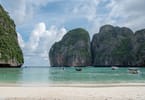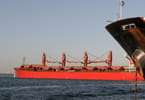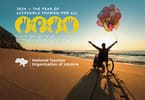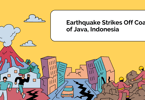MA’ALAEA (MAUI), HI – Pacific Whale Foundation president Greg Kaufman delivered a talk on “Eco-Friendly Whalewatching: It’s Not Always Easiest to Be Green” at a naturalist workshop that was conducted in Provincetown, Massachusetts at the Hiebert Marine Laboratory on April 24-26.
This three-day workshop was hosted by the Dolphin Fleet of Provincetown, Provincetown Center for Coastal Studies and Whale and Dolphin Conservation Society. The purpose of the annual workshop was to educate naturalist/science educators, interns, volunteers, and those directly involved with whale watch tours or research in the Gulf of Maine region. The conference included morning lectures that addressed the status of great whales and seals in the region, physical oceanography, and current conservation concerns. Afternoon workshops included, “Plankton and the Ecosystem,” which included lectures and hands-on identification of multiple species and, “Photo-Identification Catalogues,” which covered how to best use them as both a research and education tool.
Summer is the time when humpback whales feed in the Gulf of Maine region, with the majority of whales found in an area known as Stellwagen Bank, located off the coast of Massachusetts. This area has a large population of sand lance (also known as sand eels), which provide excellent nutrition for the whales. Stellwagen Bank is a National Marine Sanctuary. About a dozen companies operate whalewatch tours in this area.
“The workshop is in preparation for their summer whalewatch season,” said Kaufman. “I’m happy to bring the benefit of Pacific Whale Foundation’s 29 years of experience with whalewatching on Maui to share with the whalewatchers on the east coast. And I liked hearing about their ideas and experiences. It’s a great venue to learn from each other.”
Pacific Whale Foundation offered the first educational whalewatches on Maui in 1980 by chartering vessels on weekends. Scientists from Pacific Whale Foundation led these whalewatches, working to educate the public about the whales from a scientific perspective.
Later, Pacific Whale Foundation purchased vessels and the permits to conduct its own whalewatches. At this point, Pacific Whale Foundation began to add naturalists to lead the tours. Pacific Whale Foundation has a comprehensive program for training and certifying its naturalists. To become a naturalist, a person must have a degree in biology, environmental education, ecology, or related sciences, and must complete a series of classes and exams specific to Hawaii’s marine environment, along with certification in first aid, lifeguarding, CPR, and AED usage.
“We have even conducted training programs for naturalists and boat operators in Ecuador, where whalewatching has become a growing economic force,” said Kaufman.
Currently, the staff at Pacific Whale Foundation includes more than fifty Certified Marine Naturalists. Each whalewatch tour is led by not one, but a team of naturalists, so guests have easy access to an expert naturalist if they should have any questions.
“When you read comments from our guests, it’s clear that they love our naturalists, who are often described as extremely knowledgeable, friendly, and enthusiastic,” said Kaufman. “They are the backbone of our educational ecotours.”
Pacific Whale Foundation also trains its captains through its “Be Whale Aware” campaign to prevent disturbances to whales and other wildlife. Its vessels are equipped with sound-deadening hulls and quiet engines to protect sound-sensitive wildlife, and the nation’s first Whale Protection Devices for commercial vessels, to guide whales away from propellers and running gear.
Kaufman’s talk, titled, “Eco-Friendly Whalewatching: It’s Not Always Easiest to Be Green,” shared some of Pacific Whale Foundation’s direct experiences with modeling eco-friendly behaviors for its guests and using eco-friendly products. “For example, when we first started using biodegradable cups, we found that they were biodegrading very quickly if we stored them in a warm place,” says Kaufman. “Until we learned how to store them properly, we had some cups that just fell apart when you poured drinks into them. That’s just one of many little lessons we learned along the way.”
Pacific Whale Foundation is a nonprofit organization based on Maui, with projects in Ecuador and Australia. The mission of Pacific Whale Foundation is to promote appreciation, understanding, and protection of whales, dolphins, coral reefs, and our planet’s oceans. They accomplish this by educating the public – from a scientific perspective – about the marine environment. They support and conduct responsible marine research and address marine conservation issues in Hawaii and the Pacific. Through educational ecotours, they model and promote sound ecotourism practices and responsible wildlife watching.
To learn more, visit www.pacificwhale.org or call 1-800-942-5311 ext. 1.
WHAT TO TAKE AWAY FROM THIS ARTICLE:
- To become a naturalist, a person must have a degree in biology, environmental education, ecology, or related sciences, and must complete a series of classes and exams specific to Hawaii’s marine environment, along with certification in first aid, lifeguarding, CPR, and AED usage.
- Summer is the time when humpback whales feed in the Gulf of Maine region, with the majority of whales found in an area known as Stellwagen Bank, located off the coast of Massachusetts.
- “I’m happy to bring the benefit of Pacific Whale Foundation’s 29 years of experience with whalewatching on Maui to share with the whalewatchers on the east coast.






















